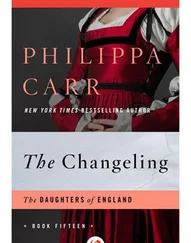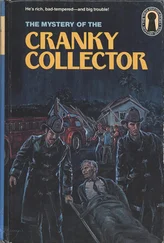All through that day I waited. It was late evening when Lance came back, bringing Aimée with him. She seemed more dead than alive and unaware of what was happening to her. We got her to bed and the doctor was sent for. She was like someone in a trance.
While we were waiting for the doctor Lance explained to me. In desperation they must have taken one of the boats and attempted to get along the coast as he had thought they would. The sea was rough and their craft very frail and they could make no headway. They were washed back to the shore again and again, but when Lance found them they had been carried out to sea. He watched them, contemplating how he could best get out to them. He saw their boat capsize and the two women washed overboard.
He saw that they were in danger of drowning. Madame Legrand went under but he managed to save Aimée.
One or two of the grooms were with him, but they could not save Madame Legrand although they made several attempts. Aimée was half-drowned, but when Lance applied artificial respiration she survived. He thought the best thing was to get her back to the house, and here they were.
Aimée recovered in a day or so. She was deeply shocked and very frightened, but I think there was a certain relief that she could tell the truth. This she did, throwing herself on our mercy.
She was wicked; she was a cheat and a liar, but she begged our forgiveness and said that if we could possibly give her another chance she would go back to France and try to earn her living there as a dressmaker, which was what she should have stayed in France to do all the time.
I was sorry for Aimée. She was quite different now from the girl I had known first at Hessenfield Castle and later here in my home. She was very fearful of the future; she was subdued, almost cringing in her terror.
She seemed to be afraid of Lance and turned her pleading eyes on me as though begging me to save her from her deserts.
When we heard the whole story, Lance and I decided we must not blame her too much, for she had been under the influence of her dominating mother. She did what she did because she had always obeyed her mother without question, and it did not occur to her that she could do otherwise.
The truth as Aimée told it to us—and I do not think she was lying, for there was no point in doing so now—was as follows:
Giselle Legrand was in fact Germaine Blanc who had lived as a servant in the hôtel where my parents had lived. Germaine had an illegitimate daughter who was Aimée and whose father was the footman in a nearby hôtel. Because Germaine was in the household she saw my father frequently, which was why she could give such an accurate account of his habits and talk of him so knowledgeably. When he and my mother died almost at the same time through what was believed to be some sort of plague, Germaine had seized her opportunity. She had stolen my father’s watch and ring. It must have been easy to pilfer from his dead body. He had realized that he was suffering from some fatal illness and had written a letter to his brother about my mother and me; but as he did not mention our names—as he had already mentioned us to his brother—it was easy for Germaine to say that the letter was given to her by my father and concerned her and her child.
Germaine had always been a clever woman. She had waited for the right moment to act, realizing of course that it might never come. But when it did she would be ready, and she was. When Aimée grew up and there was easy traffic between France and England because the war was over, she had decided to send her to Lord Hessenfield. My father had had a reputation as a philanderer and Carlotta, my mother, had been one of his many mistresses. It was logical to assume that Germaine might have been another. Who was to know that she had been a servant in the household? Shrewd and good-looking as she was, she had become the mistress of a bookseller on the Left Bank and when the Hessenfield household had broken up she went to live with him. The plan had been growing in her mind for some time and she thought it would provide very well for her daughter’s future; and when that was established she might decide to join her, which was really how it worked out. Aimée was to present herself to the living Lord Hessenfield as his brother’s daughter, and one who, according to the letter, was to have a share in the estate.
‘I did not want to do it,’ Aimée kept assuring us. ‘But I was afraid of my mother… I always have been. So I came and it was easy at first… and I liked the life. It was so much better than what I had had to do in Paris. I really made myself believe it was true… I was your half-sister, Clarissa. After all, it all seemed to fit… and it could have happened just like that. Only it didn’t. You were so kind to me… you and Lance… I could have been happy and forgotten it was all a fraud… if she hadn’t come here.’
She shivered and covered her face with her hands at this point. ‘You see,’ she said, so quietly that we could scarcely hear, ‘Jeanne knew her. She recognized her at once. She was about to come into the house and there—in the garden—was Jeanne. She took one look at my mother and said, “Why… if it isn’t Germaine Blanc. What are you doing here?” My mother hadn’t thought of Jeanne. I had forgotten to mention her. How she cursed me for that. And when she came face to face with her, she turned and ran into the woods. She allowed herself to be caught by Jeanne… there.’
I felt overcome with horror. I was beginning to see exactly what had happened.
‘Jeanne said, “What are you up to, Germaine Blanc? No good, I’ll swear… if you are anything like you used to be.” My mother then went for her. I don’t know whether Jeanne was dead before she threw her down the dene hole. But… that was the end of Jeanne. I was terrified and horrified. I really was. I could see Jeanne could ruin everything for us… but I didn’t want to kill her. I would never have done that. You must believe me, Clarissa… Lance… I was there but I didn’t do it. I had no hand in that. I never wanted to be a party to… murder.’
‘I understand,’ I said. ‘I do… I do.’
‘My mother said we must make it look as though she had run away, taking things with her. I did show her where her clothes were… the jewellery. Yes, I did that. But I had to, Clarissa. I had to do what she told me.’
‘And then your mother sold the jewellery to a London jeweller,’ said Lance. ‘That was a mistake.’
‘Yes, she needed money. It was for that reason.’
‘And,’ I said, ‘she was going to kill me.’
‘She always made plans. She said she had to get what she wanted from life. She wasn’t born lucky. That’s what she always said. She had to make her own way. None of these plans ever really brought her what she wanted. She wanted to be lady’s maid to Lady Hessenfield and when she might have got it, Lady Hessenfield died. Then the bookseller was going to marry her… and he died. I think that made her determined to succeed with this bigger plan.’
‘And why did she want to kill me… to send me down the dene hole with Jeanne?’
‘So that the money you had from Lord Hessenfield, and which had grown so much, would come to me. Then she wanted a grand marriage for me…’ Aimée flushed.
Good heavens! I thought. She was planning that Lance should be Aimée’s husband. So Sabrina’s suspicions were not without foundation.
Aimée said quickly: ‘She thought if I had your fortune it would be easy for me to find a rich husband.’ She broke down and began to cry pathetically. ‘What can become of me now?’ she sobbed. ‘Let me go back to France, please, I’ll work there. Perhaps…’
Lance and I talked a great deal about Aimée.
Читать дальше











